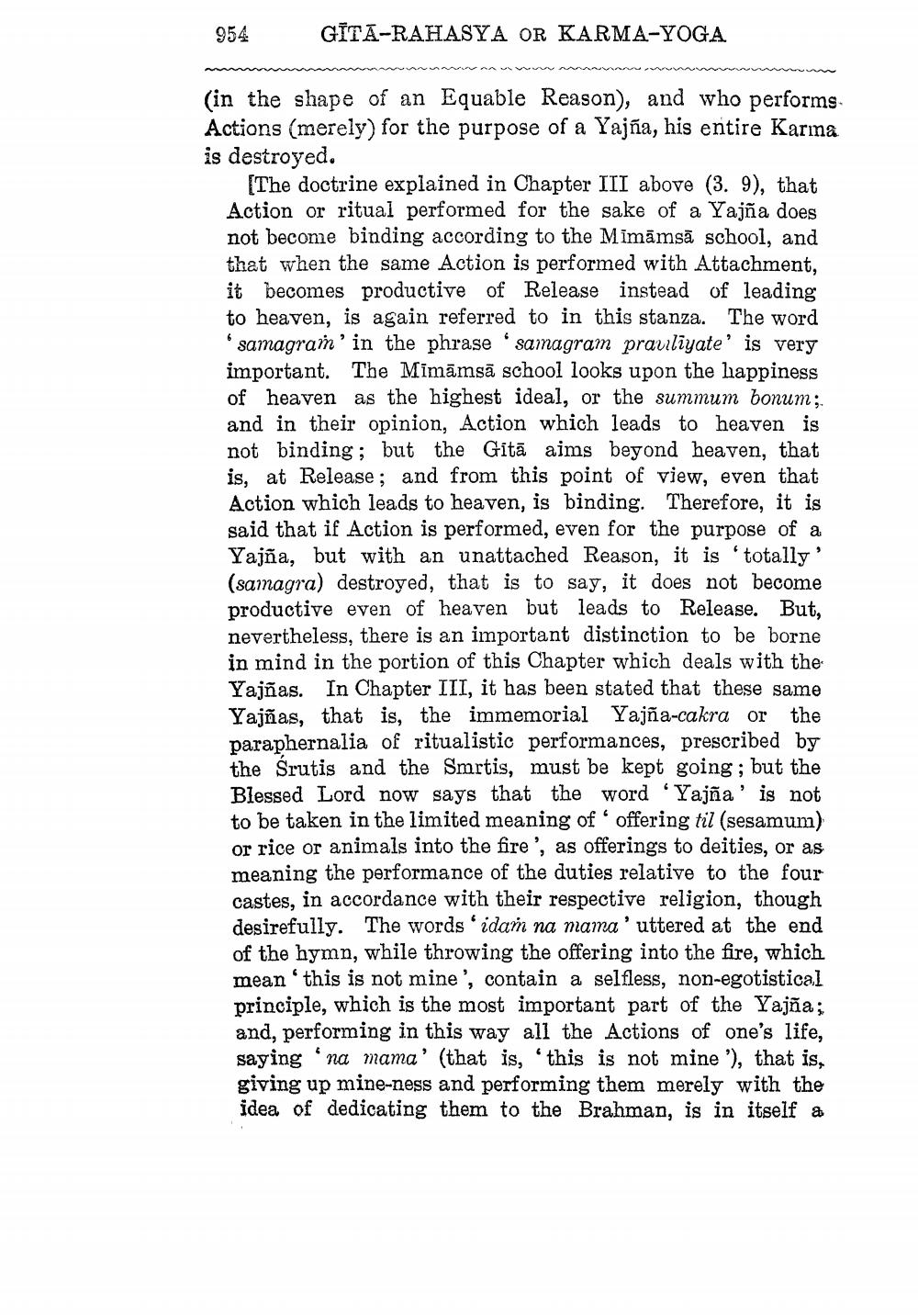________________
954
GITA-RAHASYA OR KARMA-YOGA
(in the shape of an Equable Reason), and who performs Actions (merely) for the purpose of a Yajña, his entire Karma is destroyed.
[The doctrine explained in Chapter III above (3. 9), that Action or ritual performed for the sake of a Yajña does not become binding according to the Mimamsa school, and that when the same Action is performed with Attachment, it becomes productive of Release instead of leading to heaven, is again referred to in this stanza. The word 'samagram' in the phrase 'samagram praviliyate' is very important. The Mimämsä school looks upon the happiness of heaven as the highest ideal, or the summum bonum; and in their opinion, Action which leads to heaven is not binding; but the Gita aims beyond heaven, that is, at Release; and from this point of view, even that Action which leads to heaven, is binding. Therefore, it is said that if Action is performed, even for the purpose of a Yajña, but with an unattached Reason, it is 'totally' (samagra) destroyed, that is to say, it does not become productive even of heaven but leads to Release. But, nevertheless, there is an important distinction to be borne in mind in the portion of this Chapter which deals with the Yajñas. In Chapter III, it has been stated that these same Yajñas, that is, the immemorial Yajña-cakra or the paraphernalia of ritualistic performances, prescribed by the Śrutis and the Smrtis, must be kept going; but the Blessed Lord now says that the word 'Yajña' is not to be taken in the limited meaning of offering til (sesamum) or rice or animals into the fire', as offerings to deities, or as meaning the performance of the duties relative to the four castes, in accordance with their respective religion, though desirefully. The words' idam na mama' uttered at the end of the hymn, while throwing the offering into the fire, which mean 'this is not mine', contain a selfless, non-egotistical principle, which is the most important part of the Yajña; and, performing in this way all the Actions of one's life, saying na mama' (that is, this is not mine'), that is, giving up mine-ness and performing them merely with the idea of dedicating them to the Brahman, is in itself a
4




